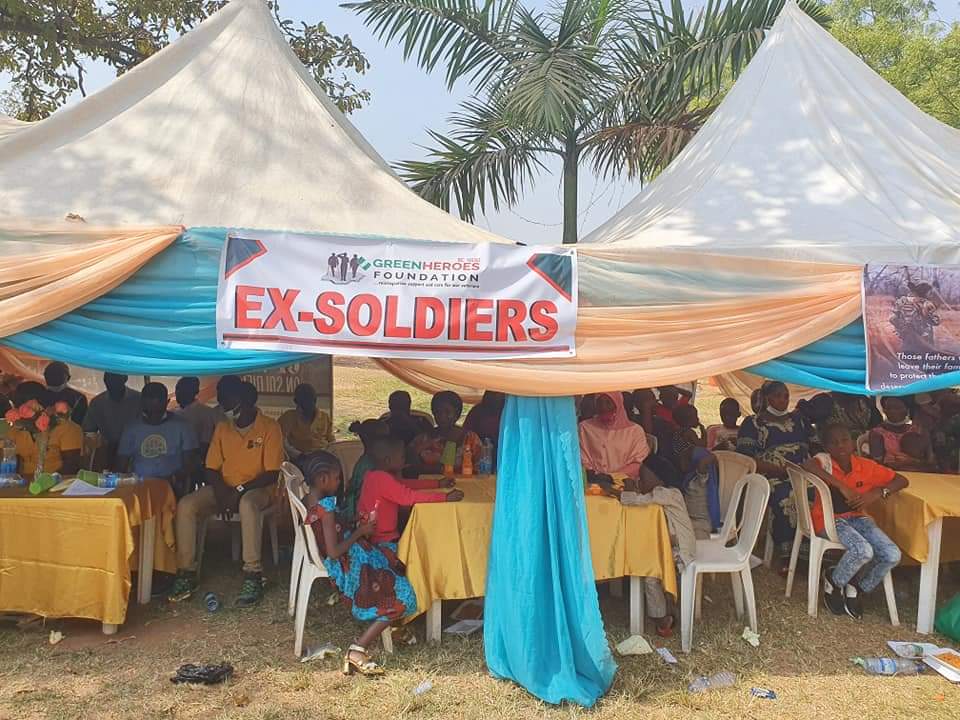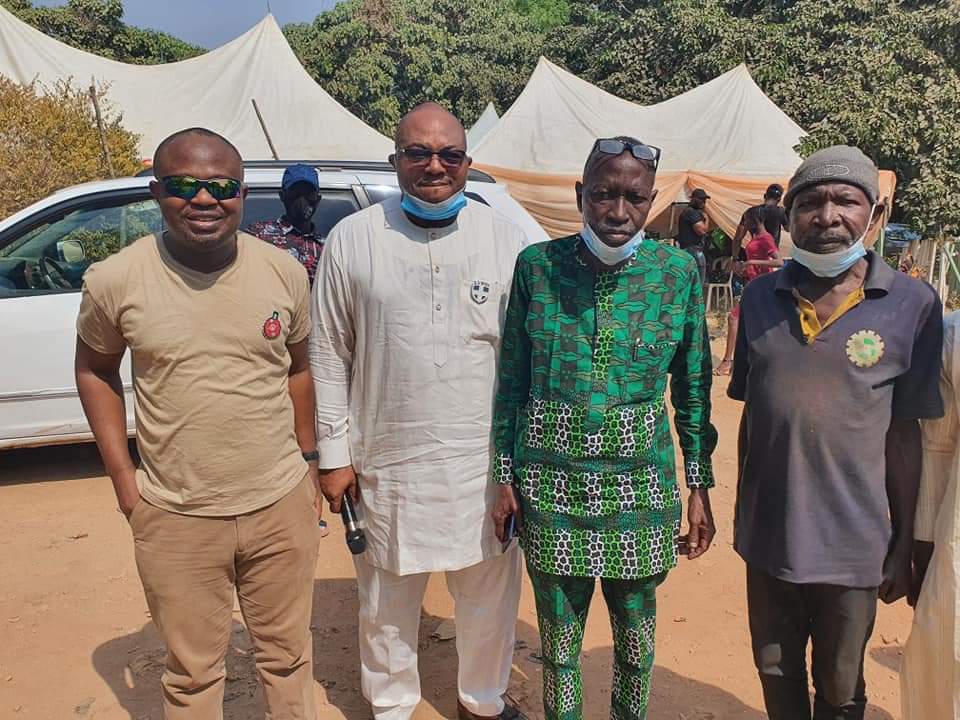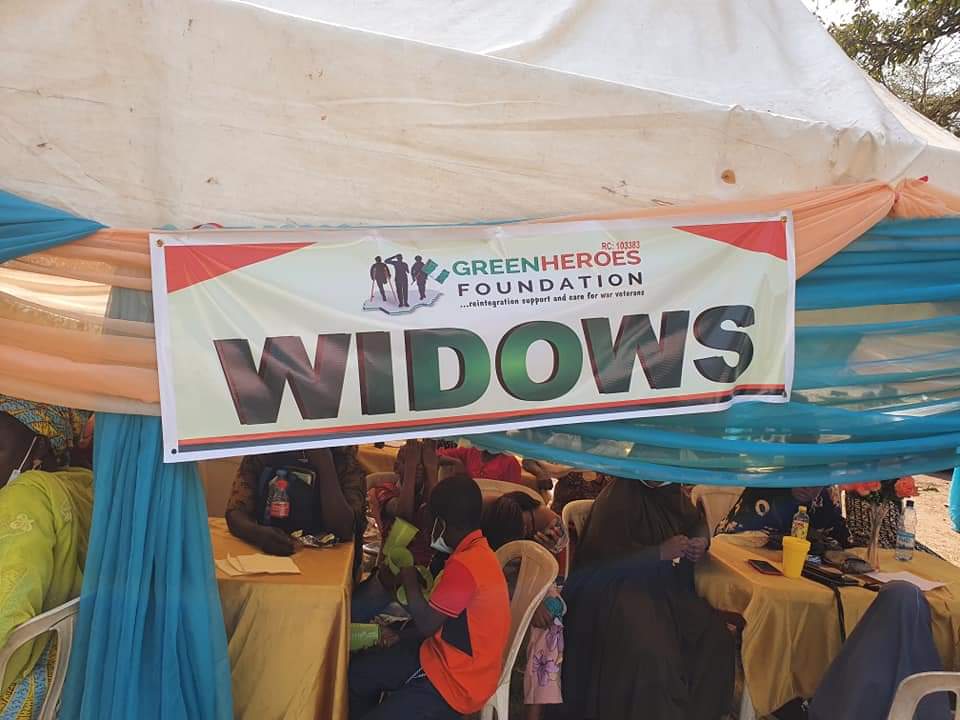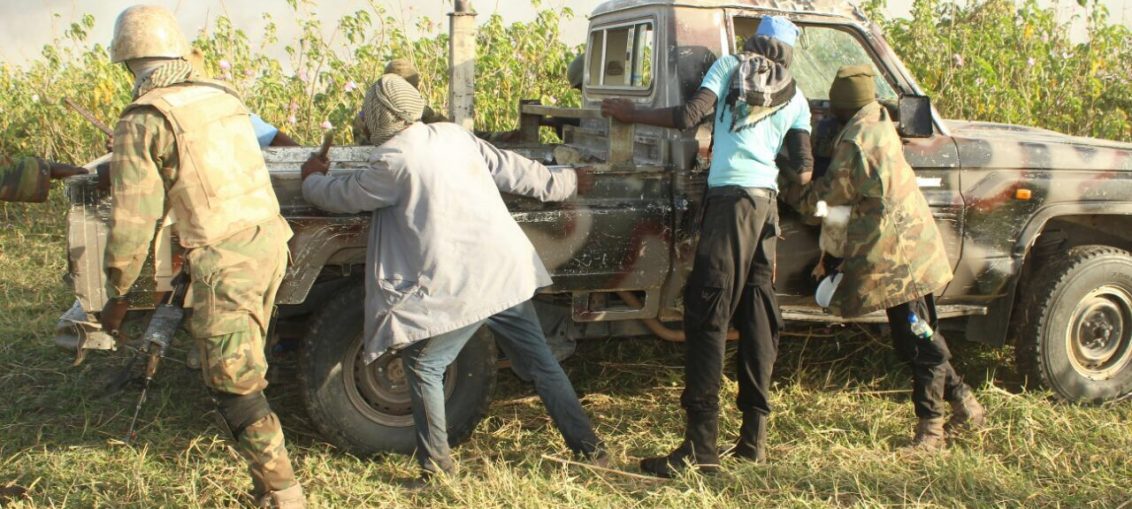Shedding light on PTSD: Media advocacy for military mental health
By Senator Iroegbu
Post-Traumatic Stress Disorder (PTSD) is a serious mental health condition that affects countless individuals worldwide. Among those most vulnerable are military personnel who have experienced traumatic events on the battlefield. Unfortunately, a lack of awareness about PTSD and a limited understanding of its implications perpetuates the suffering of these brave men and women. In a recent Focus Group Discussion (FGD), media practitioners, military officers, mental health experts, and civil society representatives came together to shed light on the challenges surrounding PTSD and explore the role of the media in advocating for greater awareness and support.
According to information gleaned from Mayo Clinic, PTSD is a mental health condition that can develop after experiencing or witnessing a traumatic event. Common symptoms include flashbacks, nightmares, anxiety, and intrusive thoughts related to the traumatic experience. While many individuals can recover with self-care, the situation is different in Nigeria and other developing countries, particularly within the military and security institutions. The high prevalence of PTSD among military personnel in Nigeria is attributed to the demanding and prolonged nature of their service, battling terrorism and insurgency without adequate rest. Ibrahim, Akindele, and Useh (2023) highlighted that the prevalence of PTSD among war-fighting personnel ranges from approximately 12% to 35%, which is significantly higher than the general population. This underscores the urgent need to address PTSD and provide support to military personnel affected by this common psychological condition.
Regrettably, the issue of PTSD has not received significant attention in the media or military institutions, with only a few organizations like Green Heroes actively advocating for it. Air Commodore Abayomi Balogun (rtd), Coordinator of Green Heroes, expressed concern that only a small percentage of military personnel, around five percent, are aware of PTSD and its inherent dangers (Balogun, 2021). This lack of awareness extends to the media and the general public, as highlighted by Defence Editor Ms. Precious Igbonwelundu, who noted that media reports often treat PTSD as an isolated case or a general mental health problem (2023). These observations underscore the overall low awareness and response to the growing issue of PTSD within the military and other security institutions.
It was against this backdrop that the FGD was organized as part of a Capstone research project by the Leaders of Africa Institute’s Research Methods Programme (RMP) 2023 to shed light on the role of media advocacy in addressing PTSD among military personnel. The research aims to explore how media advocacy initiatives can reduce stigma, raise awareness, and enhance support for military personnel with PTSD in Nigerian military operations. As noted earlier, PTSD is a complex mental health condition with significant impacts on individuals who have experienced trauma during their service. But through the investigation of media advocacy’s potential impact, the research seeks to provide evidence of its effectiveness in reducing stigma, increasing awareness, and improving support for military personnel with PTSD. The findings will contribute to a deeper understanding of the role of media advocacy in addressing the challenges faced by military personnel, guiding the development of targeted interventions and strategies to positively impact their well-being.


Photo 1: Zoom screenshot of the the participants at the Focused Group Discussion on PTSD; and Photo 2: Ex-soldiers and friend at events appreciating ex-soldiers by Green Heroes Foundation



Ultimately, the FGD was a crucial methodology used in the research to explore ways to promote social change and enhance the lives of military personnel affected by PTSD in military operations. Under the topic of “Media Advocacy and Post-Traumatic Stress Disorder (PTSD) in Military Operations: A Social Impact Analysis,” the FGD aimed to facilitate an open and meaningful conversation, gathering diverse viewpoints on the role of media advocacy in addressing and raising awareness about PTSD among military personnel. The participants, with their expertise and experiences, provided valuable insights and contributed to a comprehensive understanding of the subject matter. Throughout the session, key themes related to media advocacy, PTSD in military operations, and their social impact were explored. This blog post highlights the key insights and recommendations derived from this significant discussion.
The hidden impact of PTSD: PTSD remains a misunderstood and overlooked condition, with many individuals unaware of its existence, symptoms, and effects on military personnel. The consequences extend beyond the affected individuals themselves, burdening their families and society as a whole. The first step towards addressing this issue is raising public awareness and dispelling misconceptions surrounding it.
Empowering the media: Media practitioners have a crucial role to play in bringing the issue of PTSD to the forefront. However, it was observed that many journalists lack comprehensive knowledge about the disorder, hindering their ability to accurately report on it. Therefore, targeted training programs and workshops should be organized to equip journalists with the necessary understanding and skills to cover it effectively.
Overcoming military resistance: One significant challenge identified during the FGD discussion was the reluctance of military authorities and institutions to address PTSD openly. This resistance stems from a combination of considering the topic classified or lacking sufficient knowledge. To combat this, it is imperative to foster an environment of collaboration and understanding between the media and the military, encouraging transparent discussions and information sharing.
Enhancing access to information: Accessing reliable information from military authorities proves difficult for media practitioners, as opportunities to discuss or expose the ailment affecting military officers are often declined. Overcoming this challenge requires persistence, continued engagement, and establishing channels of communication between the media and military authorities. Collaboration with retired military personnel who can provide valuable insights should also be encouraged.
Recommendations for effective advocacy
Collaborative efforts: The media, military, and CSOs should unite their efforts to combat PTSD among military officers. By working together, they can amplify the message, raise awareness, and establish comprehensive support systems for those affected.
Training and education: Specialized training programs should be organized for both media practitioners and military personnel. Journalists need to develop a deeper understanding of PTSD to accurately report on its nuances, while military officers should receive education on mental health and the available support networks.
Policy changes and funding: Advocacy efforts should focus on influencing policy changes that prioritize mental health support for military personnel. Additionally, increased funding for PTSD research and treatment will be crucial in addressing the long-term impact of the disorder.
Conclusion
The focus group discussion highlighted the urgent need for media advocacy to raise awareness about PTSD among military officers. By addressing the challenges of limited awareness, media knowledge gaps, military resistance, and information access, we can make significant strides toward supporting those affected by PTSD and safeguarding national security. Through collaborative efforts, improved training, policy changes, and increased funding, we can ensure that PTSD receives the attention it deserves and those who have sacrificed for our safety receive the care and support they need.
References
Balogun, A. (2021). Insecurity: Traumatised Ex-War Soldiers Are Ticking Time-Bombs in Nigeria If…–Generals Warn. Global Sentinel. Retrieved from https://globalsentinelng.com/insecurity-traumatised-ex-war-soldiers-are-ticking-time-bombs-in-nigeria-if-generals-warn/
Ibrahim, S.U., Akindele, M.O., & Useh, U. (2023). Prevalence and Correlates of Post-Traumatic Stress Disorders (PTSD) among the Military in a Low-Income Country. Journal of Health Research, 37(2), 62-68. Retrieved from https://digital.car.chula.ac.th/jh
Igbonwelundu, P.I. (2023). Focused Group Discussion on the Media Advocacy on PTSD amongst Military Personnel [Zoom Meeting].
Mayo Clinic. (Accessed July 15, 2023). About Mayo Clinic. Retrieved from https://www.mayoclinic.org/about-mayo-clinic


[…] this follow-up to our earlier article on the outcome of a Focused Group Discussion and the need for media advocacy in addressing PTSD among military personnel, we delve deeper into the necessity for ongoing […]